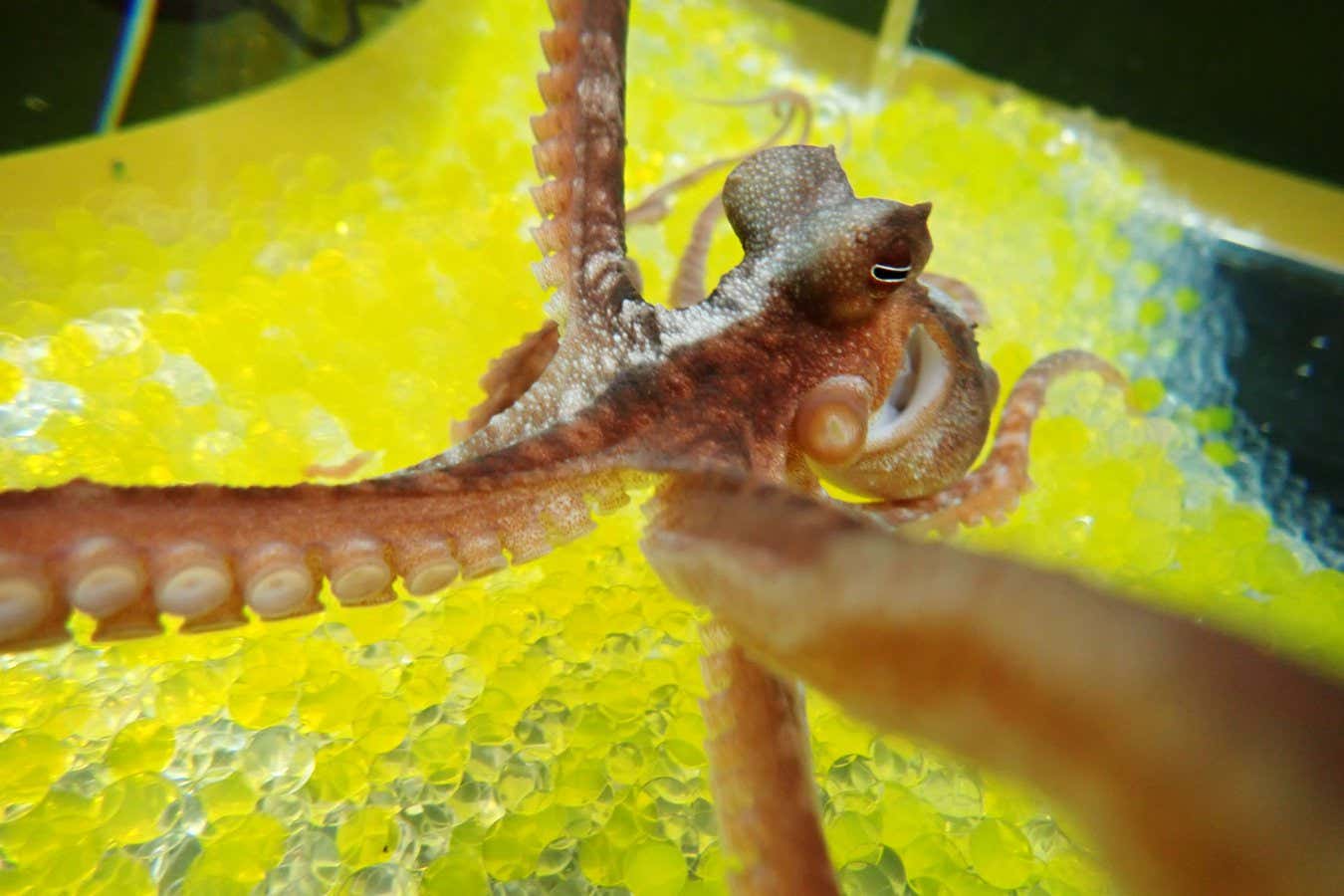Now Reading: Octopuses Show Human-Like Response to Rubber Hand Illusion
-
01
Octopuses Show Human-Like Response to Rubber Hand Illusion
Octopuses Show Human-Like Response to Rubber Hand Illusion

Quick Summary
- Research lead by Sumire Kawashima and Yuzuru Ikeda at the University of the ryukyus, Japan, found that octopuses can be fooled into thinking a fake arm is part of their body.
- The experiment involved stroking the real and fake arm together using plastic callipers. After pinching the fake arm, octopuses showed defensive behaviors like color-changing, retracting their arms, or fleeing.
- The illusion disappeared if stroking was non-simultaneous or when the posture of the fake arm didn’t match that of their real one.
- Researchers suggest this ability reflects brain wiring beneficial for survival but also highlights processing flaws common to both humans and octopuses.
- The study strengthens links between human and octopus cognitive abilities related to body ownership perception.
Indian Opinion Analysis
The findings highlight an intriguing overlap in cognitive traits between humans and non-mammals like octopuses. Such studies hold potential meaning for India’s marine research community as it strives to understand animal cognition and its evolutionary roots. From a broader viewpoint, experiments like these could assist Indian scientists in interdisciplinary work across neuroscience, biology, and robotics-fueling innovations inspired by nature’s intelligence. Additionally, understanding these mechanisms might support conservation efforts regarding clever marine species under threat due to habitat degradation.


























